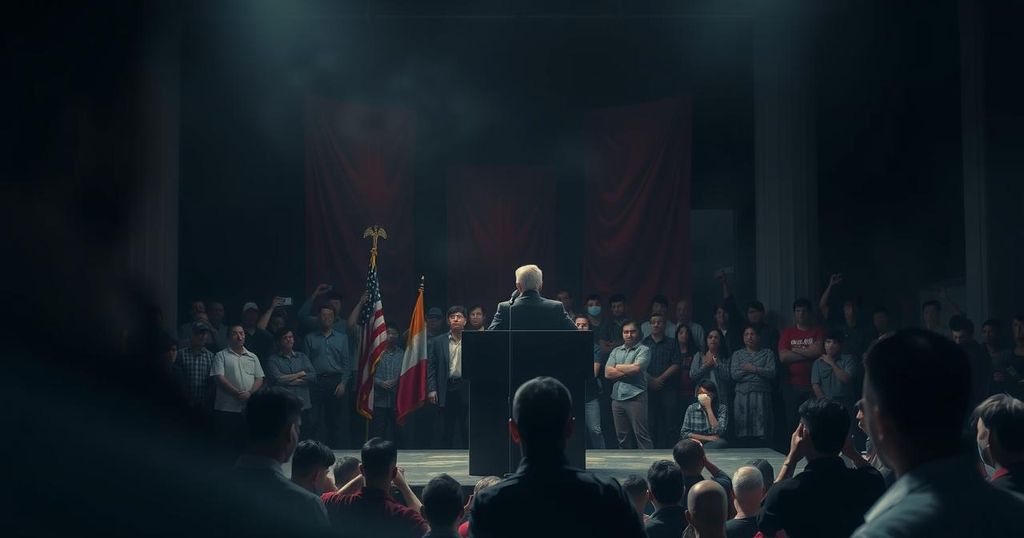Political Violence and the Electoral Landscape in the Philippines

The article discusses the alarming issue of political violence in the Philippines, with the Commission on Elections documenting 46 violent acts amid ongoing campaign season. Mayor candidate Kerwin Espinosa survived a shooting, while others have died in similar incidents. Analysts highlight that political violence remains a permanent fixture due to the high stakes of local office, amid structural issues and interconnected family and power relations.
A recent report highlights the perilous landscape of political violence in the Philippines, where election hopefuls, such as mayoral candidate Kerwin Espinosa, must consider the severe risks associated with public office. The Commission on Elections (Comelec) documented 46 acts of political violence from January 12 to April 11, including a shooting incident involving Espinosa, who miraculously survived his injuries. Tragically, other candidates have not been as fortunate, with several fatalities linked to violent attacks as the nation approaches its mid-term elections on May 12.
Despite a drop in fatalities, with Comelec stating “fewer than 20” candidates have been killed this campaign season, analysts remain cautious. Laudiangco, a Comelec spokesperson, remarked on the stark reduction compared to the previous election cycle, where approximately 100 lives were lost. Nonetheless, experts foresee that violence will persist in the Philippines’ electoral process due to the high stakes associated with local political positions, which confer significant control over various resources and power dynamics.
Danilo Reyes, an associate professor of political science, noted the tendency of violence to flourish in regions far from Manila, where local power brokers operate with significant impunity. The concentration of power among local elites ensures that such figures can maintain dominance through patronage networks, often resulting in violent confrontations. Arguelles emphasized that losing control of local government translates not only to diminished popular support but also to severe political and economic ramifications.
In the absence of robust institutions for conflict resolution, confrontational violence has emerged as a prevalent tactic. Following Espinosa’s shooting, investigations ensued, with seven police officers being scrutinized. However, obtaining convictions remains problematic, as statistics indicate that nearly 79 percent of violent acts against local officials between 2018 and 2022 went unsolved. Reyes pointed out that national politicians often lack incentive to pursue serious inquiries into violent incidents, focusing instead on maintaining electoral alliances.
The political climate in the Philippines fosters a reciprocal arrangement between local and national leaders, facilitating electoral success at the expense of accountability. Recent incidents, such as the shooting of a district board candidate in Mindanao, underscore the ongoing threat of violence, particularly in historically volatile regions. Following a tragic shooting of a Comelec official, the commission has implemented direct oversight of several municipalities, aiming to improve safety and security during the electoral period, despite limitations in the effectiveness of its measures.
While Comelec has initiated a security strategy focused on safeguarding elections, Laudiangco acknowledged the challenges posed by deeply rooted familial and political ties in provincial settings. He asserted that addressing these entrenched issues is crucial to reducing violence and improving the electoral process, emphasizing, “We all know Filipinos are clannish, that’s our culture. But we’re improving slowly.”
In conclusion, the Philippines’ electoral landscape is marred by violence, necessitating serious reflection from political candidates on the associated risks. With a recorded reduction in candidate fatalities this season, the underlying challenges remain formidable. The intertwined dynamics of local politics, power, and entrenched familial relationships contribute to a cycle of violence that persists despite efforts for reform. Thus, the continuous struggle against political violence is pivotal for enhancing democratic processes in the Philippines.
Original Source: www.arabnews.com






